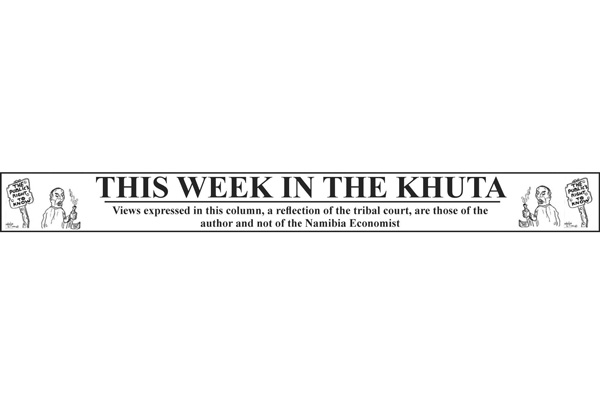
Story or fact: someone wants to know
 Is investigative journalism dead in Namibia? I asked this question after I heard a statement from someone rather prominent in society: “Namibians are so eager to believe what they read and they can’t be blamed for that even if the information is not true. [It seems], the fault does not lie with the media necessarily, – even the government probably does not do a good job in informing the public about our own information. We sometimes steer clear of mentioning certain things until the media picks up on it then we act defensive,” The statement made me realise that there might just be a gap in the way in which certain information is received from experts to the way it is conveyed to the public. Narrowing down to one area: I’ve spent the past few months trying to understand the subtle yet technical nature that revolves around presenting economic news. From what I have observed there are very few reporters who possess the ability to truly grapple with the issues in this field. One does not need a degree in the subject matter but one has to be patient enough to read extensively, ask as many experts as possible before the journo can dare to even present a story on something as simple as inflation or the latest price of fuel. This type of reporting requires a certain je ne sais quoi which is probably rooted in the journalist ability to critically think and analyse. So where does the breakdown happen? I have often found that it is sometimes the reporter’s unchecked ambition. His/her desire for a story often clouds his/her judgement that the facts seem boring and irrelevant. But are the facts really boring? Is that the problem with economic news? Probably not. The problem may lie in the fact that the reporter (and this happens to all of us) does not understand what the facts mean. We fail to investigate and to understand the truth that it’s sometimes easier to simply publish the press releases that we receive from companies.
Is investigative journalism dead in Namibia? I asked this question after I heard a statement from someone rather prominent in society: “Namibians are so eager to believe what they read and they can’t be blamed for that even if the information is not true. [It seems], the fault does not lie with the media necessarily, – even the government probably does not do a good job in informing the public about our own information. We sometimes steer clear of mentioning certain things until the media picks up on it then we act defensive,” The statement made me realise that there might just be a gap in the way in which certain information is received from experts to the way it is conveyed to the public. Narrowing down to one area: I’ve spent the past few months trying to understand the subtle yet technical nature that revolves around presenting economic news. From what I have observed there are very few reporters who possess the ability to truly grapple with the issues in this field. One does not need a degree in the subject matter but one has to be patient enough to read extensively, ask as many experts as possible before the journo can dare to even present a story on something as simple as inflation or the latest price of fuel. This type of reporting requires a certain je ne sais quoi which is probably rooted in the journalist ability to critically think and analyse. So where does the breakdown happen? I have often found that it is sometimes the reporter’s unchecked ambition. His/her desire for a story often clouds his/her judgement that the facts seem boring and irrelevant. But are the facts really boring? Is that the problem with economic news? Probably not. The problem may lie in the fact that the reporter (and this happens to all of us) does not understand what the facts mean. We fail to investigate and to understand the truth that it’s sometimes easier to simply publish the press releases that we receive from companies.
What I have learnt is that the public is just as interested in learning about the economy. It is just that the education they want to receive is somewhat skewed. It appears that most readers want to find fault and mistakes in the current economic trends. Impending doom seems more likely to receive “hits” than words like stable or progressive. Maybe we have been geared to believe that only bad news is good news. That is probably why a court case ended with a deathly conviction receives more attention than expansion of the Walvis Bay port.
Alas maybe it’s simply a matter of taste. Some news will be read and some news will be ignored. Do editors play a role in this truth: yes they do. Are they to blame for what the public finds intriguing? Probably not. Writing as I have come to realise is a God given gift that some have and some do not but we can equip our reporters that even though the writing may be mediocre, truths and facts always follow their stories. Economic indicators may be seen as bland and inconsequential but only because no one has given you the bigger picture. Whether the fault lies with those who are giving the information or those who are later distributing it remains debatable. What can be said is that reporters and readers need to be more critical about the technical news that they receive.
If a journo goes to the trouble of truly understanding the economic principles, and presenting same in such a manner that everybody, and by that I really mean EVERYBODY is made aware that it determines his or her daily life, then I am sure, many more people will actually find economic news entertaining.












































